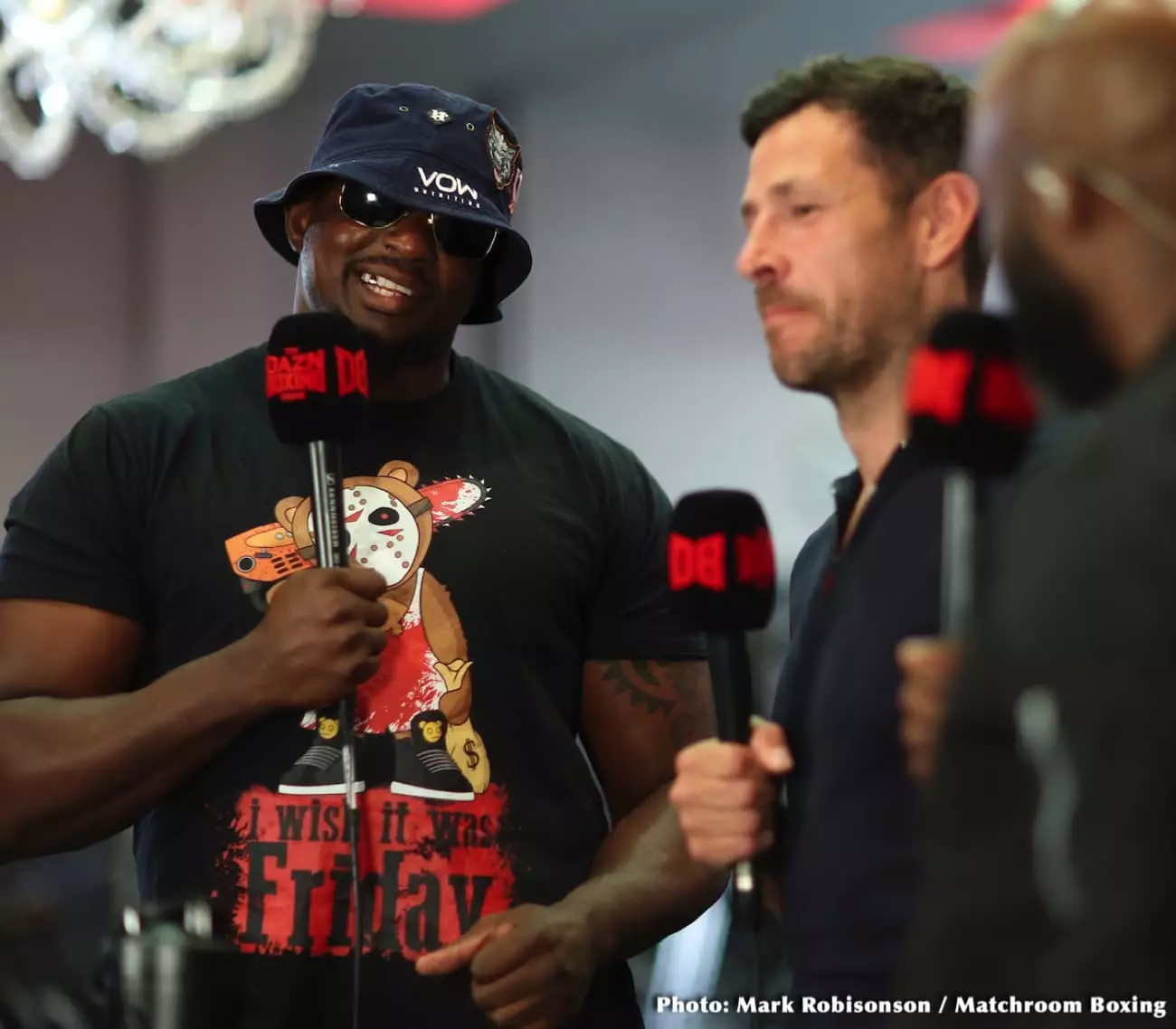Dillian Whyte is a name that resonates within the world of heavyweight boxing, often associated with grit and determination. At 37 years of age, many would argue that Whyte’s best fighting days are behind him. Yet, the Londoner is unabashedly eyeing a potential return to the ring against formidable opponents, embodying a quintessential fighter’s spirit. Despite a recent lackluster performance, where he struggled to secure a victory against lesser-known adversary Ebenezer Tetteh, Whyte remains adamant about competing at the elite level once again. This unwavering belief is simultaneously commendable and concerning, as it raises questions about his trajectory in a sport known for its brutal realities.
Whyte’s insistence on remaining active and relevant in heavyweight boxing, despite the lingering doubts regarding his capabilities, showcases a paradox that is often prevalent in sports—athletes’ reluctance to accept the inevitability of decline. With every punch thrown in the ring and every training session endured, Whyte seems to cling to the hope that he can once again find his place among boxing’s giants. This mindset, while admirable, may also indicate a dangerous unwillingness to confront the realities of aging in a sport where youth and agility are key.
Anticipation Builds: A Potential Battle Against Hemi Ahio
As Whyte looks ahead to a potential matchup against New Zealander Hemi Ahio, currently standing at a record of 24-1, the boxing community is abuzz with curiosity. Whyte’s position as the manager to rising star Fabio Wardley adds an intriguing layer to the atmosphere surrounding the upcoming June 7 event in Ipswich. While Whyte may fail to dazzle with charisma, his desire to face tough opponents remains palpable. It’s almost as if he’s searching for a spark to reignite his passion and skill in the ring, an antidote to his recent struggles.
How will Whyte fare against Ahio? This question bears significant weight on both the British boxer’s future and, by extension, his hopes for a shot at the heavyweight elite. If he emerges victorious, it could signal a turnaround, a much-needed comeback trajectory for Whyte, who has been grappling with inconsistent performances. However, if he falters again, it could cast a long shadow over his career aspirations, provoking a reflection on whether he has indeed reached the twilight of his boxing journey.
Challenging Heavyweights: A Wish List of Rivals
Whyte’s other declared potential opponents include Joseph Parker, Filip Hrgovic, and Deontay Wilder, each possessing their unique formidable styles and reputations. But is it feasible for Whyte to reclaim his status in the boxing hierarchy against such competition? While the ambition of reclaiming former rivalries shines a hopeful light, the stark reality is that fighters like Parker have shown marked improvement and progression since their last encounter. The once-lost decisions of yesteryear may not hold the same allure or competitive edge in a rematch scenario.
Moreover, Whyte’s aspiration for an ‘AJ trilogy’ is particularly poignant, as this speaks both to his past and an almost nostalgic yearning for redemption. The amateur showdown hangs over him, as does Joshua’s commanding victory in their prior professional engagement. However, one must question the practicalities—would Joshua entertain this bout after his foray into higher-profile challenges, or has Whyte become a reminder of a potentially bygone era?
The Future is Uncertain: Reflections on Legacy
At its core, the recent developments underscore a compelling narrative of longing for return and revival in the cutthroat realm of heavyweight boxing. Whyte’s journey serves as a microcosm of the universal struggle athletes face: the drive for greatness versus the reality of physical decline. The boxing world will be watching closely as he steps back into the ring. The crux of the matter lies not in his words but in his actions. The looming question remains—how much does Dillian Whyte have left? His upcoming match against Ahio may very well determine his legacy, either solidifying his place in the annals of boxing or reinforcing the notion that every fighter, one day, must face the inevitable truth of their limitations.


Leave a Reply